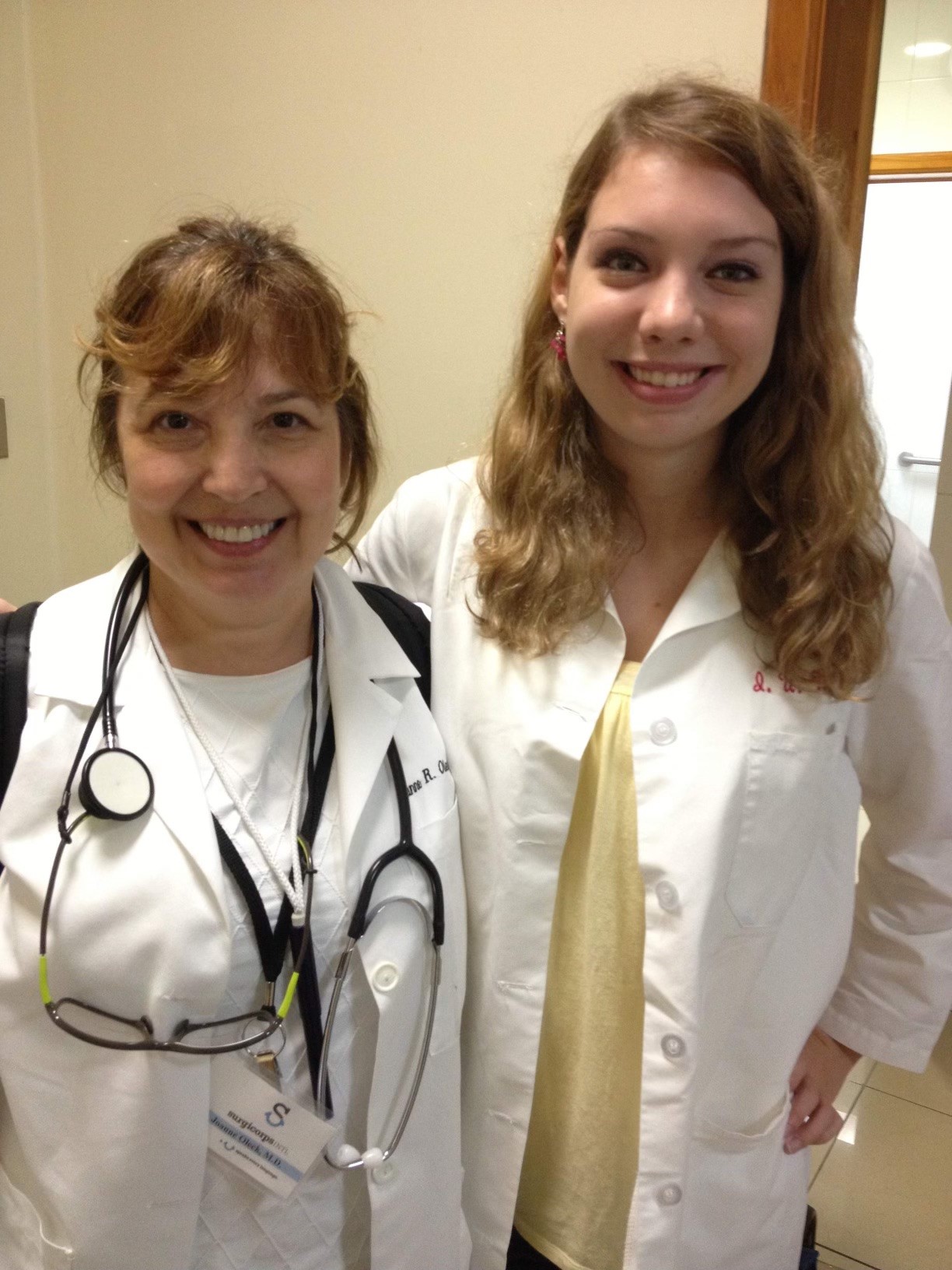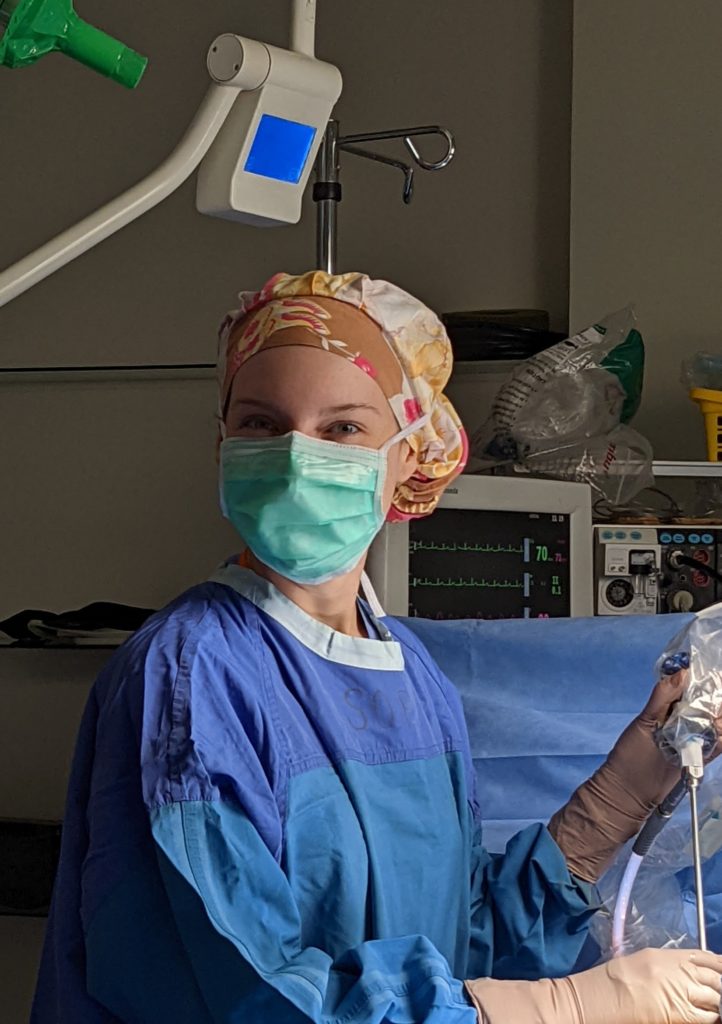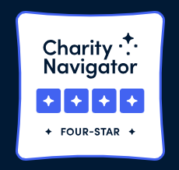
My first introduction to Surgicorps happened, as many life-changing moments do, serendipitously. I was a 17-year-old high school student, sitting (begrudgingly) in a clinic waiting room, accompanying my mom on her annual GYN appointment. I had protested this excursion (as any teenager would), but my mom stood firm, insisting that I just had to meet her doctor, Dr. Joanne Oleck. There was just something about her strong character and decisive personality, my mom said, that would do me good to see. And, as is usually the case, my mom was right.
As Dr. Oleck wrapped up the appointment, she turned to me and asked about my interests. I told her that I was planning on studying pre-med in college, and that I also spoke Spanish and was planning to double-major. Without hesitation, she remarked “Oh, you should come to Guatemala with me!” My mom and I both looked at each other, thinking that she couldn’t be serious, but a few seconds later she was writing down the name of an organization, Surgicorps, that she traveled with. She told me to fill out an application and mention her as a reference. And so, a few months later in August 2013, made my first trip to Guatemala as an interpreter. And now, in August 2022, I just completed my 6th trip, now as a 4th year medical student and first-time official member of the medical team.
Reflecting back on my prior trips, it is incredible to see the transition from then to now. For one thing, when the dinner conversation switches to discussion of the intricacies of cases or physiology, I actually understand what is going on, which is really cool. I can dictate a medical note, I can answer patient’s questions about a procedure, I can read a chart and pick out the relevant findings and pertinent information, I can take a detailed history and do a physical exam, I can collect the instruments needed for a procedure, and I can look at the screen during a laparoscopic procedure and actually identify relevant anatomy instead of just seeing a bunch of pink blobs. All of these skills are things I’ve learned gradually over the past 4 years of school, without really noticing my progress. However, when I compare this past trip to my previous trips, I can see in a new light just how far I’ve come. When I was 17, I dreamed of being exactly where I am today. And that is an incredible feeling to reflect on.
One thing that I know for sure is that I would not be where I am today without Surgicorps and all of the incredible mentors I’ve met along the way. First and foremost, I will never be able to express the gratitude I have for Dr. Oleck taking a chance on me and going out of her way to include me on the team at just 17 years old. She was the first mentor in medicine I ever had, and her strength and perseverance have inspired me to this day. She even went as far as to be my roommate on my first trip, sending her husband, Mike, off to a different room for the week so I would be allowed to attend as a minor. I still have the Spanish medical dictionary she gave to me on that first trip; one of the many reminders of her that I will treasure and carry with me throughout my career.
Although Dr. Oleck is no longer with us, I’m sure that she would be proud that on any trip, you are most likely to find me in the GYN OR. This is thanks to Drs. Farzi Nabizadeh and Anne Hardart, who picked up right where Dr. Oleck left off and took me under their wings from the beginning. I have learned so much from Farzi and Anne, both academically, but also interpersonally in watching how they connect with patients through clear and understandable explanations, and a kindness and lightheartedness that make a big surgery feel a little less scary. Their guidance, teaching, and friendship over the years has shown me the type of doctor I hope to be one day, and has also cemented my decision to incorporate women’s health as a large part of my future practice. In speaking of strong female mentors, I can’t go without mentioning Linda, DeNese, and Stephanie, whose decisiveness, organization, and ability to lead have given me something to aspire to from a young age. I also so admire Dr. David Kim both as a surgeon and a teacher. I still remember on my first trip, when I came down with mild cellulitis after getting innumerable mosquito bites on my ankle, Dr. Kim drew me a diagram of the inflammatory response on a recycled piece of surgical drape to help me better understand what was going on physiologically. I later went on to major in Immunology, but still remember Dr. Kim’s explanation as one of the most clear and understandable descriptions of this complex cascade. The anesthesia team has also been a memorable component of all of my trips, always ready to talk physiology with me and answer my questions if I peek my head around to their side of the drape. I still have a note on my phone from 8/9/17 titled “Anesthesia Meds” where I jotted down all of the details of our conversations about the mechanisms of action of Neostigmine, Rocuronium, and Propofol to name a few. Dave Metro and Brian Gierl are a blast to work with and have taught me so much. Post-op is my other favorite place to be on each trip, and I can’t thank Amy and Cathy enough for teaching me that sometimes, the best medicine is just holding someone’s hand and making them smile. As this long paragraph reveals, I’ve had no shortage of mentors through my experiences with Surgicorps, and each person on each trip has helped me to become the person that I am today.
It might be surprising to learn that, even after 6 surgical missions, I don’t plan to become a surgeon. But I fully credit my experience with Surgicorps with helping me to discover the areas of medicine that inspire me most: building relationships with patients, understanding how a person’s circumstances influence their health, and focusing on education and comprehensive care. Additionally, learning from Guatemalan patients and hospital workers over the years has greatly enhanced my understanding of the practice and perception of medicine outside of the US. All together, these experiences have inspired me to pursue Family Medicine, centering my future practice around Spanish-speaking communities and caring for every member of the family while providing complete, one-stop, in-office care to combat the barriers of language access, cost, and limited time that disproportionately affect underserved communities. Eventually, I also hope to practice internationally, moving to Paraguay with my husband, Alejandro, and focusing on advocacy projects by partnering with and teaching at local medical schools, and working within the public healthcare sector to provide care to those most in need. But, I will always also leave a little room for serendipity, trusting that the most formative and life-changing opportunities will come about on their own, just like this one did 9 years ago.
And of course, my 6th trip with Surgicorps will definitely not be my last. I am looking forward to being a continued member of the medical team and helping in any capacity I can.


